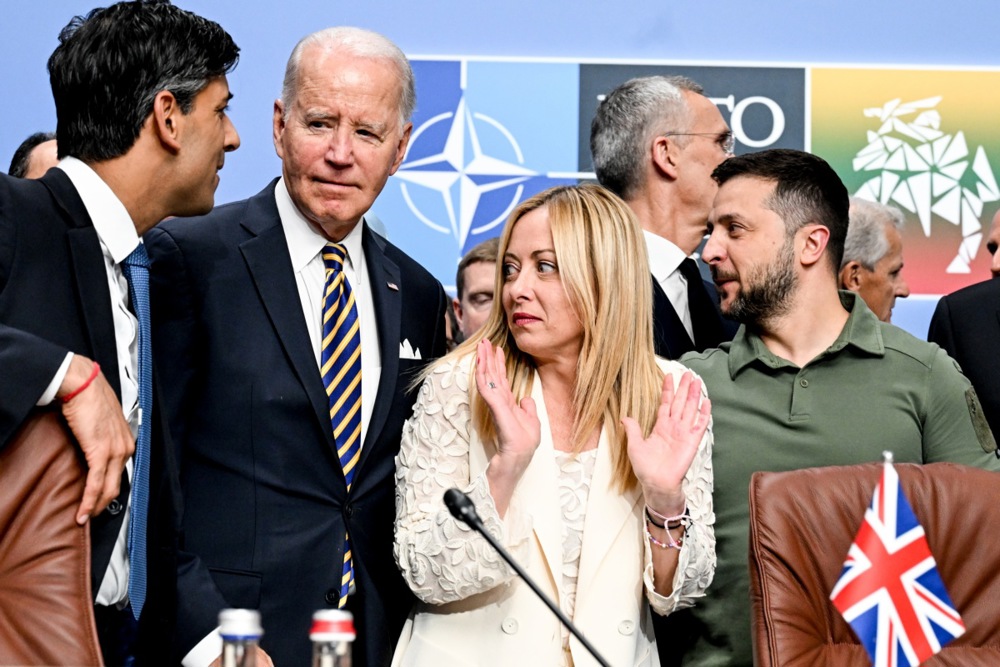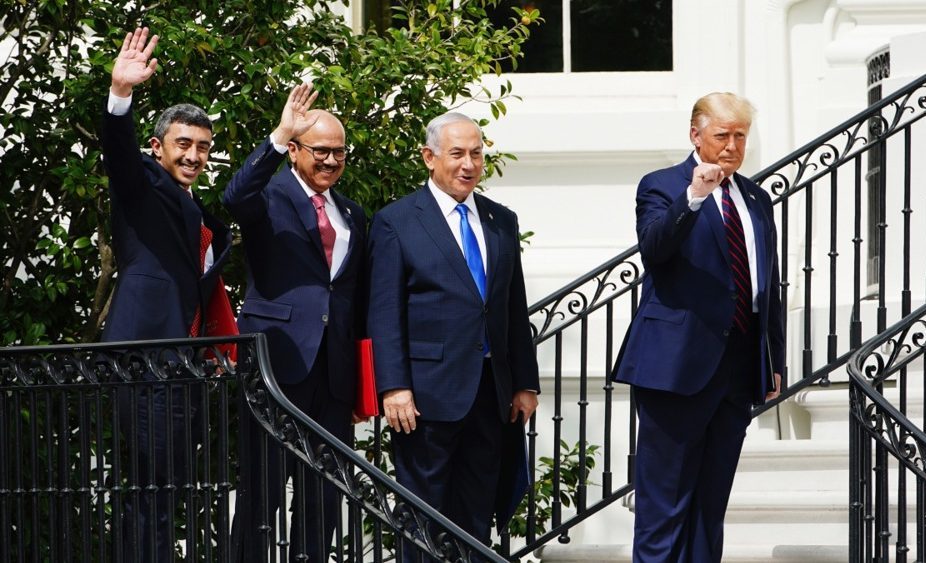Crooks failed to kill Trump, despite giving it their (sorry, his) best shot. It was a monumental event that will likely be seen, in retrospect, as a turning point not just in American but Western politics more broadly. In terms of assessing the full effects of the shooting, one is reminded of the Chinese premier Zhou Enlai alleged remark when asked about the impact of the French revolution of 1789: “It’s too early to tell.” But some observations and an important question are already worth pointing out.
The election is over
Polling numbers for the 2024 US presidential election were already tilting in Donald Trump’s favour even before the great debate of three weeks ago which saw Biden freeze on stage. The sitting president’s slow erosion in national polling was in fact one of the key reasons why his team agreed to an early debate in the first place.
The subsequent Democratic Party drama prompted by Biden’s disastrous performance – or rather, the very public demonstration of the advanced stage of his dementia – complete with public calls in America’s foremost papers for him to step back, meant that by the time of last weekend’s events in Butler, Pennsylvania, Biden’s campaign was in meltdown. With Biden clearly refusing to move aside, a Trump victory had become almost inevitable. “Almost,” because a combination of unforeseen events and heavy fraud (a Democrat specialty, going back to Kennedy vs Nixon) can always overturn even a solid lead.
Last Saturday’s assassination attempt, with its millimetric miss, and Donald Trump’s extraordinary, visceral display of triumphal bravery and determination in the face of near-death, together with the dramatic imagery of the moment, are the stuff of legends. Much can and will be written on the truly historic dimension of this event in all its aspects, which could easily read like a story from Plutarch.
But one thing is clear: Trump has emerged from this supreme trial of character and destiny incomparably stronger as a candidate than he already was before. His base is now rightly mobilised to the maximum (on principle, not just on message), and will remain so right up to the election. And many people who were undecided until this point, will now be switching their support to the victim of this unspeakable outrage which comes at the end of a long series of Democratic incitements to violence and hatred against Trump. Finally, the former president has now also acquired considerable “street cred” with key demographics, including many Zoomers, which will unlock new voting pools on his behalf.
In these circumstances, the election is practically over, even though the Trump campaign will still have to keep up the momentum. But their competitive advantage over the Democrats is now unassailable. This is important to understand, because many people are still in denial about the second coming of Trump. Well, it will happen – so everyone needs to prepare for it.
Post-liberal populism is here to stay
In recent years there has been plenty of pessimism (or “blackpilling”, in the cool kids’ lingo) on the political Right across the West with respect to the apparently inexorable creep forward of the Leftist juggernaut through the institutions of culture, the deep state and big business. Things like the unparalleled abuses of the Covid lockdowns, the cult-like devotion to the Green Agenda, the spread of cancel culture and the relentless LGBTQ+ attempts at social re-engineering, have dispirited particularly the more moderate spectrum of conservative opinion (while further radicalising its extremity).
To this may be added the series of political reversals or at least failures to break through – starting with Donald Trump’s own “defeat” in the 2020 election. In Britain, the Conservative government became an embarrassing picture of incompetence and failure – especially the failure to take advantage of the historic opportunity of Brexit – that it lost a full half of its voters and was booted out last month by Labour.
In France, Le Pen lost again against Macron and recently missed its chance at a triumph in the parliamentary elections. Spain, Germany and Poland are also now ruled by the Left, as is Australia and Canada. The only significant silver linings for the Right have been in the Netherlands, where Wilders came on top at the last election (but even so, failed to become prime minister), and in Italy, where Meloni (now a clownish character known for pulling funny faces) leads a right-wing coalition but has otherwise joined the globalist consensus in international affairs.
But the key battleground has always been the United States, where the contemporary “post-liberal” populist movement was truly forged in practice and also finessed in theory, as a reaction against both Democratic progressivism and institutional Republicanism, i.e. crony libertarianism and neoconservatism. It is in the crucible of American politics where the great radicalisation and descent into post-ideological tribalism has been enacted, and then exported to the rest of the Western democratic world.
The system, however, has fought back everywhere, as discussed above. “Davos Man” still controls enormous resources, and the plebeian revolt which gathered pace from 2016 could still have failed – until Crooks took a shot at Trump last Saturday. The effect of DJT’s survival (in style) is not only to win him the election but to secure his movement, and by extension to guarantee the perpetuation and growth of right-wing populism in the future, for two reasons.
One is the power of symbols, which is one of the greatest forces that operate in the history of human affairs. The Butler shooting is still too recent for its full implications to set in and be processed; and many of them will only become apparent in time. But what we know is that powerful symbols – and a bloodied Trump’s raised fist is absolutely one for the ages – coupled with the legend of powerful leaders – which Trump will now forever be seen as by his supporters – can inspire and keep generations of activists going and fighting for a cause.
What Spartacus is for those fighting against oppression, Brutus for the principled opponents of dictatorship, Che Guevara for the anti-Capitalist struggle or Martin Luther King for civil rights, Trump will be for his MAGA movement and those aligned to it, i.e. their hero. (This is not to suggest an equivalence between any of these characters, but just to point out similarities in status as symbols.) The gladiator fighting the Romans, the patrician wielding the knife of “liberty,” the Communist whose face is a favourite on teens’ T-shirts, MLK giving his I have a dream speech – these are iconic images that concentrate and perpetuate the essence of an idea. The “Fight!” picture from Saturday is in the same category.
The legend around Trump will only grow, whether we like it or not. A psychological threshold has been crossed, and the movement – in the US, but beyond as well, by way of inspiration – has now been justified by a dramatic event in full view of the whole world.
A road to Caesarism?
The second reason why the “revolt” is now unbreakable is because of Trump’s choice of J D Vance as vice-presidential candidate and, effectively, heir to the MAGA throne. There is no way to know at this stage what name DJT had in mind before the events of Saturday, but Vance’s nomination is certainly the best and most logical move Trump could have made in response to his attempted assassination. Crooks and the people who wanted him to succeed in killing Trump right before the Republican convention knew that this would have thrown the MAGA movement into infighting and complete disarray precisely because it was all held together by Trump himself. (Whether, and who, “aided” Crooks will eventually come to light, but the evidence already overwhelmingly points to at least passive enablement of the shooter.)
With Vance now officially invested with full MAGA second-in-command powers and authority, the value of assassinating the boss has dropped considerably: kill Trump, get Vance – and MAGA continues. By choosing Vance, (now) the most loyal and hardcore of the top MAGA leaders, Trump has dramatically reduced the incentives for his enemies to give assassination another go.
Vance’s position in the party as Trump’s successor – whenever and however the handover happens – is now unassailable. Again, historical patterns seem to be at work here, with Vance playing Mark Antony to Trump’s Caesar. The US senator, with his (admittedly brief) military background, is as ruthless and combative as Caesar’s foremost lieutenant at Rome, but smarter and more disciplined. The plot thickens when one considers that much of the underground talk among the “dissident Right” (Trump’s most loyal supporters among the millennial and zoomer generations) already compares Trump’s son, Barron, with Octavian. Taking the name of Caesar Augustus, he brought the Republic formally to an end, after defeating Antony and his foreign-born wife, Cleopatra.
Historical patterns tend to repeat across the ages because human nature remains constant despite the passing of time, and people of similar dispositions tend to act the same when confronted with the same kind of choices and incentives in their own days, even if the setting is different. Are we therefore witnessing the rise of Caesarism in the American republic, as Trump, with Vance next to him, prepares to retake control of the White House and completely reform – perhaps remake – the state? Quite possibly.
Gabriel Elefteriu is deputy director at the Council on Geostrategy in London and a fellow at Yorktown Institute in Washington, D.C.






Blueprint for US defence policy under a second Trump administration